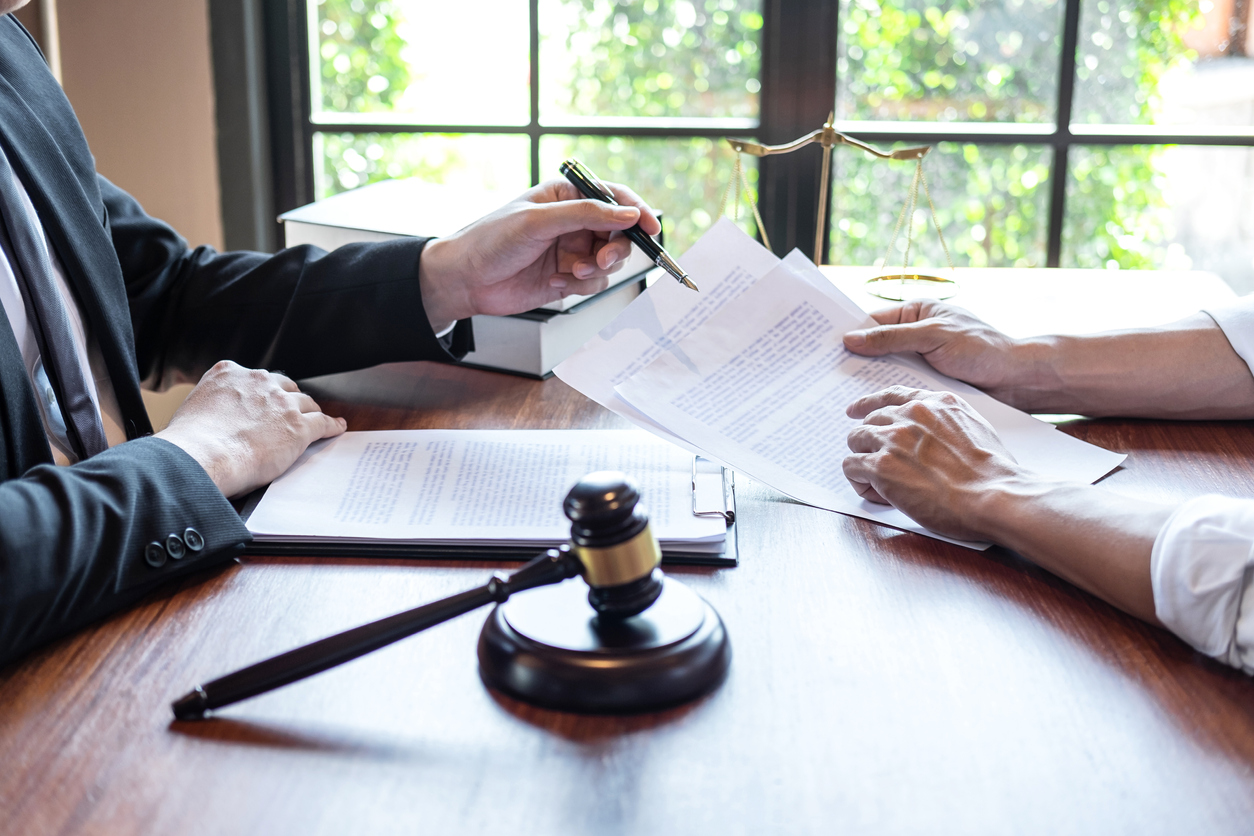Peter Blair | September 1, 2022 | Criminal Defense

Attorney-client privilege protects oral and written communications between you and your attorney concerning your case. Even a nod of the head or silence is protected. No court can use this information against you, whether in court or other litigation proceedings, such as pretrial discovery, even after you die. This rule arises from the Sixth Amendment’s right to counsel. Its purpose is to encourage clients to speak frankly with their lawyers.
The Duty of Confidentiality: Your Additional Protection
You should not confuse attorney-client privilege, a rule of evidence, with the duty of confidentiality, which includes attorney-client privilege but is much broader in scope. Strictly speaking, attorney-client privilege does not provide you with comprehensive protection. It only applies to litigation.
You wouldn’t want business competitors knowing about the information you may have revealed to your lawyer, for example, and you wouldn’t want embarrassing secrets to find their way to the media or your family and friends. The duty of confidentiality prevents the lawyer from revealing anything you tell them about your case to anybody, excluding limited exceptions.
The duty of confidentiality is included in the California Rules of Professional Conduct. A lawyer can face serious professional penalties, including disbarment, for violating the duty of confidentiality, including but not limited to attorney-client privilege. The duty does not apply to releasing implicitly authorized information, such as the lawyer sharing information about your case with members of their own firm.
Are Initial Consultations Protected?
Suppose you speak with an attorney in a free initial consultation. You haven’t paid the lawyer any money, haven’t decided whether you want the attorney to represent you, and disclose information about your case to the lawyer. Does attorney-client privilege protect you?
As long as you seek legal advice or representation and reasonably believe the communication between you and the lawyer is confidential, it most likely does. However, it’s best to confirm this with the attorney at the time of your meeting.
Exceptions to Attorney-Client Privilege
Following are the major exceptions to attorney-client privilege. These exceptions do not include exceptions to the duty of confidentiality, which are beyond the scope of this post.
Voluntarily Sharing Information With Third Parties
Attorney-client privilege does not protect you if someone else is present (other than members of the lawyer’s own firm) when you communicate with your lawyer.
You do not waive your attorney-client privilege simply because an eavesdropper heard or read a communication that you intended to be confidential. When in doubt, any information that you share with your lawyer is confidential.
Client Waiver
Attorney-client privilege belongs to you as your property does. Just as you can discard property if you choose, you can waive attorney-client privilege concerning all or any portion of your communication with your lawyer.
Future Crime or Fraud
The attorney-client privilege does not apply if you seek the advice of an attorney to help you commit a future crime or fraud (planning a murder, for example).
Prevention of Harm
Your lawyer can reveal your communications to the extent necessary to prevent imminent death or serious bodily harm to anyone. This exception applies even if no crime is involved. For instance, it won’t apply if the client reveals they are planning suicide over pending drug charges.
Joint Clients
The attorney-client privilege does not apply in civil litigation between former joint clients of the attorney. However, even in the context of former joint representation, the privilege does apply to criminal prosecutions.
Breach of Duties To Each Other
The privilege does not apply to breach of your duties to each other due to your attorney-client relationship. Suppose, for example, that your lawyer sues you for failing to pay your legal fees. They can reveal enough information as necessary to establish their claim.
The Client Bequeaths Property Under a Last Will and Testament
Suppose a dispute erupts among your beneficiaries under your last will and testament. One of the potential beneficiaries alleges that you were mentally incompetent when you finalized the will. Your lawyer can reveal information concerning your mental competence. They can also testify concerning your signing of the will or what you meant by certain provisions.
Don’t Be Afraid To Contact a Lawyer If You Have a Problem
Seek a lawyer if you need one, and don’t let concerns about confidentiality stop you. If you are concerned that the lawyer may have committed ethical violations, consult the State Bar of California website. You can look up the lawyer by name and view their disciplinary record.
If you’re facing charges for domestic violence, drug crimes or any kind of criminal charges, contact us.
Contact a San Diego Criminal Defense Lawyer at Blair Defense Criminal Lawyers Today For Help
For more information please contact the San Diego criminal defense attorneys at Blair Defense Criminal Lawyers for a free consultation, give us a call at (619) 357-4977 or visit our convenient location:
Blair Defense Criminal Lawyers – San Diego Criminal Defense Law Firm
255 Broadway, Ste 1740. San Diego, CA. 92101
24/7
